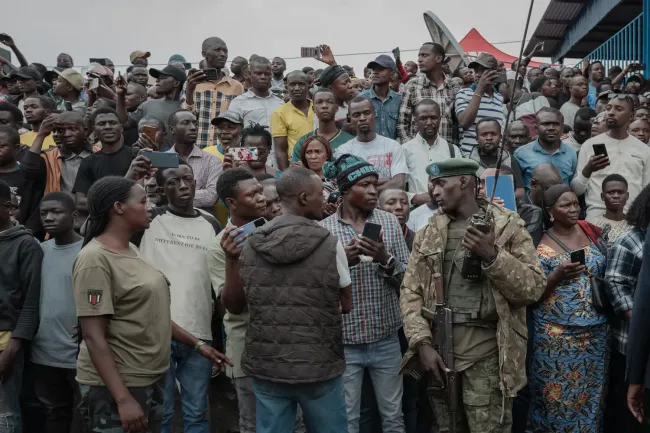The M23 Rebel Group in Congo: Unraveling the Complex Conflict in the Heart of Africa
The Democratic Republic of the Congo (DRC), a nation rich in resources yet plagued by conflict, has faced decades of violence in its eastern regions. Central to this turmoil is the M23 rebel group, a faction that has reignited cycles of displacement and instability. This blog explores M23’s origins, impact, and the intricate web of regional politics fueling one of Africa’s most enduring crises.
Origins of M23: A Broken Peace Agreement
M23 emerged in 2012, named after the March 23, 2009, peace deal between the Congolese government and the National Congress for the Defence of the People (CNDP), a Tutsi-majority rebel group. The agreement aimed to integrate CNDP fighters into the national army and address ethnic grievances. However, former CNDP members accused Kinshasa of failing to uphold the deal, particularly regarding protection for Tutsis against rival militias. This betrayal birthed M23, which swiftly seized territory in North Kivu Province, marking the start of a new conflict chapter.
Resurgence and Tactics
After a 2013 defeat by UN and Congolese forces, M23 resurged in late 2021, exploiting ongoing instability. The group has since captured strategic towns like Bunagana, disrupting trade routes to Uganda. Their tactics include guerrilla warfare, recruitment of child soldiers, and alleged collaboration with Rwandan forces—a claim Kigali denies. Despite periodic ceasefires, clashes with the Congolese army (FARDC) and UN peacekeepers (MONUSCO) persist.
Regional Dynamics: Rwanda’s Shadow
The conflict is internationalized. UN experts and Western governments accuse Rwanda of arming M23 and deploying troops—a charge Rwanda vehemently denies. Analysts suggest Kigali’s involvement stems from security concerns (rooted in the 1994 genocide) and economic interests in Congo’s minerals. Uganda has also faced scrutiny, though its role is less direct. This proxy warfare complicates peace efforts, with Kinshasa expelling Rwandan ambassadors and regional tensions soaring.
Humanitarian Catastrophe
The human cost is staggering. Over 1 million people have fled North Kivu since 2022, joining 6.9 million Congolese displaced nationwide. M23 stands accused of massacres, sexual violence, and looting—a pattern documented by Human Rights Watch. Aid groups struggle to access conflict zones, while cholera and malnutrition spread in overcrowded camps. Civilians, especially women and children, bear the brunt of this unrelenting crisis.
International Response: Diplomacy and Discontent
The global community has responded unevenly. MONUSCO, active since 1999, faces local backlash for perceived ineffectiveness, prompting plans for withdrawal. Sanctions target M23 leaders, and the US has pressured Rwanda to cease support. Regional initiatives, like the East African Community’s military deployment, show promise but lack coordination. Meanwhile, Congo’s President Félix Tshisekedi champions a hardline stance, criticizing international complacency.
Current Challenges and Paths to Peace
Recent mediation led by Angola and Kenya has seen fragile ceasefires, yet distrust runs deep. Key obstacles include:
- Resource Greed: Control of gold, coltan, and cobalt mines funds rebellions, with global tech industries indirectly fueling conflict.
- Ethnic Divides: Historical tensions between Tutsis and other groups remain unresolved.
- Regional Rivalries: Rwanda-DRC animosity undermines dialogue.
Sustainable peace requires disarming militias, inclusive governance, and economic reforms. The Luanda Roadmap (2022) and Kenya-led dialogues offer hope, but implementation lags.
Conclusion
The M23 conflict epitomizes Congo’s tragedy: a wealth of resources overshadowed by suffering. While military solutions falter, addressing root causes—corruption, ethnic exclusion, and foreign interference—is vital. As regional leaders and the international community grapple with competing interests, Congolese civilians continue their resilient pursuit of peace. The world must listen, act, and break the cycle of violence before another generation is lost.
